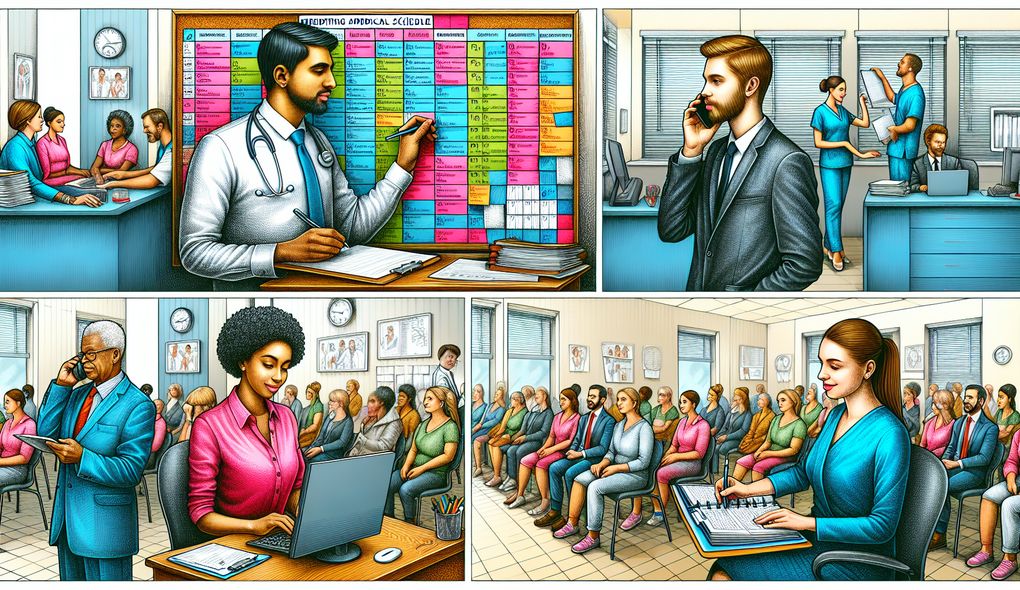Can you give an example of a time when you had to handle a challenging or difficult patient situation? How did you handle it?
JUNIOR LEVEL

Sample answer to the question:
Yes, I can give you an example of a challenging patient situation that I had to handle. One time, I had a patient who was extremely anxious about an upcoming procedure. They were very nervous and had a lot of questions about the process. I knew that it was important to provide them with the support and reassurance they needed during this difficult time. So, I took the time to sit down with the patient and explain the procedure to them in detail, addressing all of their concerns and answering all of their questions. I also made sure to provide educational materials and resources to help ease their anxiety. Throughout the process, I maintained open and honest communication with the patient, ensuring that they felt heard and understood. By providing compassionate care and personalized attention, I was able to help the patient feel more comfortable and confident about the procedure.
Here is a more solid answer:
Certainly! I can give you an example of a time when I had to handle a challenging patient situation. There was a patient who had a complex medical history and was struggling with managing their appointments and coordinating with multiple healthcare providers. This led to frequent scheduling conflicts and delays in receiving the necessary care. To address this situation, I took a proactive approach by scheduling a meeting with the patient to discuss their concerns and understand their specific needs. During the meeting, I carefully listened to their challenges and developed a tailored solution. I coordinated with all the healthcare providers involved in the patient's care, ensuring that their appointment schedules aligned and there were no conflicts. Additionally, I implemented a reminder system to help the patient stay on top of their appointments and provided them with a detailed schedule. As a result of my efforts, the patient's appointment scheduling became seamless, and they no longer experienced delays or missed appointments. The patient expressed their gratitude for my assistance and mentioned that they felt supported throughout their healthcare journey.
Why is this a more solid answer?
The solid answer provides a more comprehensive description of the challenging patient situation and the candidate's actions in resolving it. It includes specific details about how the candidate addressed the scheduling conflicts and improved the patient's experience. However, it could further emphasize the candidate's communication and problem-solving skills by providing more examples or highlighting specific strategies used.
An example of a exceptional answer:
Certainly! I can provide you with an exceptional example of a challenging patient situation that I successfully handled. I once encountered a patient who had a debilitating fear of needles and required regular blood tests for their condition. This patient's fear was so severe that they would often refuse to undergo the necessary tests, compromising their healthcare. To address this challenge, I employed a multi-faceted approach. Firstly, I spent time building trust and rapport with the patient, creating a safe and supportive environment. I listened to their concerns attentively and validated their fear, emphasizing that their feelings were valid and understandable. Next, I collaborated with the healthcare providers to develop a personalized plan for the patient's blood tests. This plan involved implementing distraction techniques and employing a gentle and reassuring approach during the procedure. In addition, I arranged for a certified phlebotomist experienced in working with anxious patients to perform the blood tests. I also provided the patient with educational materials and resources on overcoming needle phobia, encouraging them to gradually confront their fear. As a result of these efforts, the patient slowly built up their confidence and was able to undergo blood tests with reduced anxiety. This not only ensured the continuity of their healthcare but also improved their overall well-being. The patient expressed their gratitude for the empathetic care they received and mentioned that their fear of needles had significantly decreased.
Why is this an exceptional answer?
The exceptional answer provides a highly detailed and comprehensive example of a challenging patient situation, demonstrating the candidate's exceptional skills in handling difficult situations. The candidate displays empathy, effective communication, collaboration with healthcare providers, and implementation of strategies tailored to the patient's specific needs. The answer also highlights the candidate's ability to achieve positive outcomes for challenging patients. However, to make it even better, the candidate could mention any additional support or resources they provided to the patient to facilitate their progress in overcoming their fear of needles.
How to prepare for this question:
- Reflect on past experiences where you had to handle challenging or difficult patient situations. Think about the specific details of the situation, the actions you took, and the outcomes achieved.
- Consider the communication and interpersonal skills necessary for effectively managing difficult patient situations. Practice articulating your thoughts clearly and empathetically when discussing these situations.
- Review your knowledge of medical office procedures and patient scheduling. Familiarize yourself with common challenges that may arise in scheduling appointments and coordinating care.
- Research strategies for managing patient anxiety and fear, such as distraction techniques or relaxation exercises. Understand how these techniques can be applied in a medical office setting to support patients.
- Think about how you can leverage your organizational and time-management skills to optimize scheduling and ensure smooth operation of the medical office. Be prepared to discuss specific strategies or tools you have used in the past.
- Consider the importance of confidentiality and accuracy in a medical office setting. Reflect on how you have demonstrated attention to detail in your previous experiences and be prepared to provide examples.
What are interviewers evaluating with this question?
- Communication and Interpersonal Skills
- Attention to Detail
- Problem-Solving
- Patient Care

